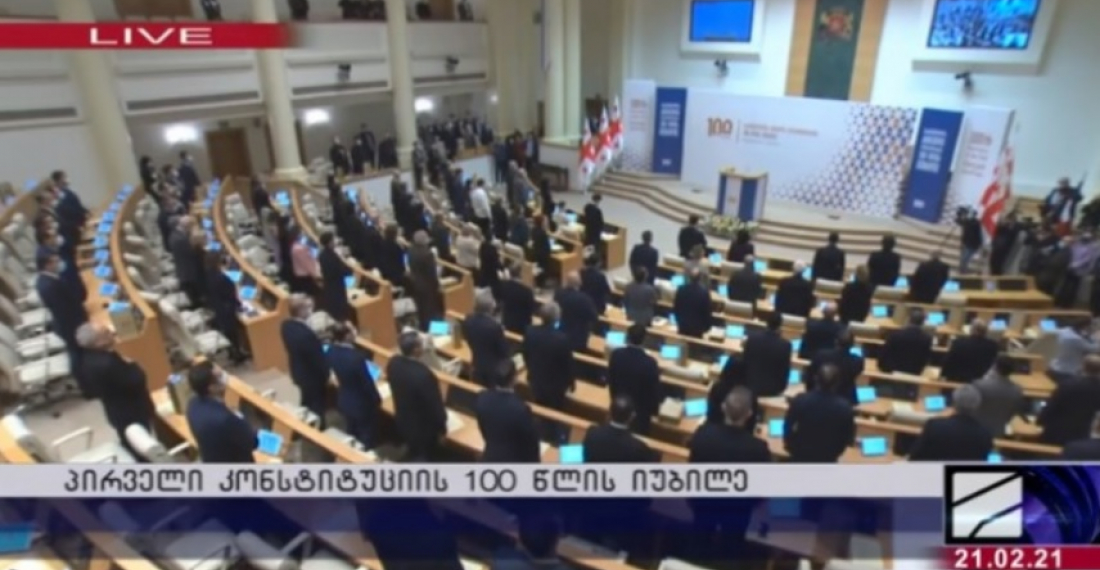Georgia has marked the 100th anniversary of its first constitution with a ceremony at the Georgian parliament on Sunday (21 February) attended by president Salome Zurabishvili, prime minister designate Irakli Garibashvili and MPs.
The first Georgian Constitution was adopted on 21 February 1921 at the time of the short lived first Georgian republic, which fell under the control of the Soviets soon after. Despite its short life, the 1921 constitution is considered a cornerstone of Georgia’s independent statehood that serves as the basis for the modern-day constitution.
A new constitution for Georgia was adopted in 1995. A new Constitution was adopted in 2020 and another round of constitutional changes is scheduled for next year.
Recent constitutional changes have been mired in political controversy. Today Georgia is again facing political turmoil with Government and opposition caught in a dangerous stand-off that may lead to serious consequences. Last week Georgia's prime minister Giorgi Gaharia resigned citing disagreements with the ruling party. A new government is likely to be approved next week, but the opposition keeps contesting the results of last October's parliamentary elections and demanding news polls. Most opposition MPs have not taken up their seats in the new parliament.
source: commonspace.eu with agencies
photo: Screen grab from a special session of the Georgian parliament in Tbilisi marks the 100th anniversary of the country's first constitution







